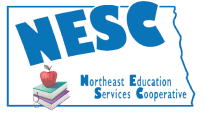“NESC has provided me with invaluable resources and knowledge to refine my craft and keep our school district competitive and progressive in twenty first century learning. They have provided professional development that has changed the direction of our district and helped us to refocus our school improvement goals (Marzano High Reliability Schools training). They have been available for support on every level for our administration and staff, and provided some of the best training I’ve ever attended in my 25 years of teaching (Steve Dunn Writing Workshop). Without their expertise and commitment to our schools, we would not have the resources and strategies available for effective instructional practices. I can’t imagine not having the NESC as our main professional development support system. They are the solid foundation of collaboration and excellence that small rural districts in North Dakota need.
Melissa HiltnerFormer K-12 Instructional Coach, Langdon Area Public Schools
“As the former High School Principal and current Superintendent at Dakota Prairie Schools, I have witnessed first-hand the benefits of the NESC’s Succeed 2020 program. These benefits range from technology assistance, data retrieval, professional development analyzing data, and support. In the time I have been at DP, we have transitioned to a one-to-one school, implemented data teams at both campuses, implemented a data intervention time with our students, and begun wrestling with best practices in regards to classroom teaching and data usage. All of these improvements are due directly to the assistance and guidance allowed to us by the NESC’s Succeed 2020 Grant.
Jay SladeSuperintendent, Dakota Prairie Public Schools

Contact Us
810 10th St. SE, Devils Lake, ND 58301
888-701-NESC (6372)
nesc@nescnd.org
© 2025 NESC.


